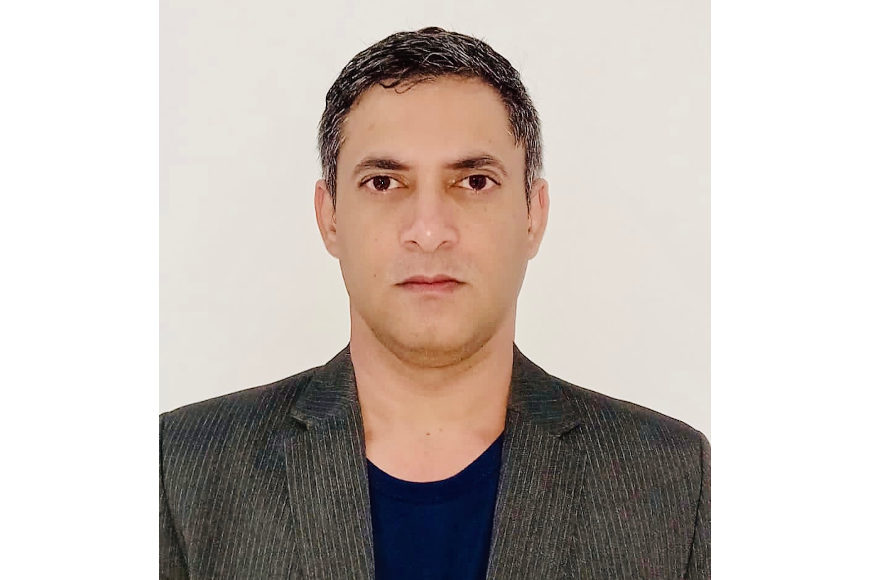The National Research Foundation (NRF) rating system is a significant driver in the NRF’s goal to build an internationally competitive science system in South Africa. It recognises researchers who count among the ‘cream of the crop’ in their accomplished fields of skill and gives acknowledgement to those who continuously produce high superiority research outputs.
Obtaining his excellent recognition on his recent C2 NRF rating has been both a delight and relief for Professor John Mellem, an Associate Professor within the Department of Biotechnology and Food Science at the Durban University of Technology (DUT).
“This for me is a true triumph as I am now equivocally recognised as a leading international scientist in my field for my high quality and the impact of my recent research outputs.,” he said exultantly.
He relayed that a C2 rating is interpreted as all reviewers being firmly convinced that the applicant is an established researcher and has the privilege of enjoying international recognition for the quality and impact of the research outputs.
“As academics and researchers within DUT, everything that we do is embedded in ENVISION2030 in terms of collaborations, innovative research and future-ready graduates which are criteria assessed during the rating evaluation. There is no greater pleasure than sharing this achievement and privilege with the institution that made it all possible.,” added Prof Mellem.
Delving more on his academic role, Prof Mellem conveyed that his role at DUT focuses on capacity development through teaching, research, and postgraduate supervision, and is one of three leading researchers within the research focus area, “Food and Nutrition Security”.
Currently, his research focuses on the characterization of biomolecules for the development of functional foods/ nutraceuticals to address non-communicable diseases viz. diabetes, cancer and cardiovascular diseases. Specific interests include the health benefits of antioxidants/biomolecule in grains and legumes against oxidative stress, and the development of bionanomaterials for the delivery of bioactive compounds.
He joined the academic realm of DUT in 2007 as a Junior Lecturer under the then GOOT (Grow Our Own Timber) programme, looking at advancing equity objectives through promising students to serve as junior academic staff. Since then, he was promoted to a lecturer in 2009, Senior Lecturer in 2013 awarded an Associate Professorship in 2018.
For Prof Mellem, he had always considered the field of biological sciences as most compelling. Although he did spend some time exploring other research areas such as plant biotechnology, he ultimately decided to focus on the research area of Food Science and Technology.
Being in the field of research, Prof Mellem delved into some of the highlights of his career.
“One of my highlights is obtaining my associate professorship in the Faculty of Applied Sciences in 2018, where I was once an undergraduate student myself, which I consider as a great achievement due to my humble beginnings,” he admitted happily.
In 2020, he was the recipient of the Faculty Teaching Excellence award and has also been awarded a Faculty Research Excellence and Teaching Excellence awards in 2021.
However, there have been instances when he had faced some challenges as a researcher.
“Research plays an integral part in my success stories at DUT. Within the Research Focus Area of Food and Nutrition Security, there is a constant compulsion to further grow our very successful research area, to conduct remarkable research, embrace innovation, encourage entrepreneurial thinking, and strive to undertake quality, collaborative, inter-disciplinary, and intra-disciplinary research and to maintain the relevance of that research in an ever-changing environment,” he clarified.
Prof Mellem indicated that one of the greatest associated challenges is to motivate students to continue with higher degree studies and increase the pool of established South African researchers who can positively contribute not only to their field of study, but society as a whole.
Prof Mellem also made mention that the NRF rating is definitely the kind of validation every researcher seeks at some stage of their career implying international standing and recognition in the scientific world.
“It speaks volumes on an individual’s research outputs and it encourages researchers to further publish high quality outputs in high impact journals,” he said.
For Prof Mellem, as a C2 rated researcher, he will be presented with further opportunities such as funding, expansion of postgraduate supervision and potential new collaborations on research projects at an international level.
He imparted further that often emerging researchers feel the pressure to publish as many papers as they can with the assumption that this is an indicator of quality.
“However, citations and a strong H-index play an important part in applying for any rating as well as the quality of outputs. It is preferable to publish one paper in a journal recognised by peers for quality than three papers in journals that may be predatory,” he added.
He indicated that a rating application should never be rushed, any comments recommending an application be withdrawn should only be taken as constructive criticism which would only serve to strengthen any subsequent application.
Prof Mellem is currently involved in collaborative projects with various members of the Agricultural Research Council (ARC) with research focused on the use of indigenous underutilized food crops for innovative product development in the form of value addition, technology transfer and market improvement.
“The rating will allow for a greater expansion of projects in terms of collaboration at both a national and international level with a drive to expand the field of knowledge through research outputs in high impact journals,” he said.
Also sending her good wishes was the Deputy Vice-Chancellor: Research, Innovation and Engagement at the DUT, Prof Sibusiso Moyo.
She relayed that as part of DUT’S ENVISION2030 Sustainability perspective, having NRF Rated Researchers is one of the ways DUT can create sustainable research and an innovation enterprise, with a capacity to contribute to the doctoral skills training and mentoring of the next generation scholars.
Pictured: Professor John Mellem, an Associate Professor within the Department of Biotechnology and Food Science at the Durban University of Technology (DUT).
Waheeda Peters


